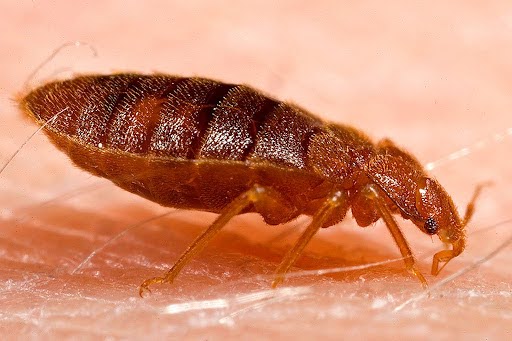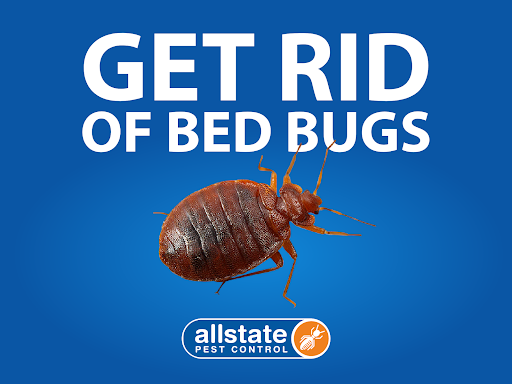So, how do you treat bed bug bites?
Start by washing the affected skin with soap and water. Apply a cold compress. Use an anti-itch cream or calamine lotion. And avoid scratching, no matter how tempting.
If the bites worsen or signs of infection appear (which is rare), speak to your doctor. Some cases may need antihistamines or prescription creams.

At Allstate Pest Control, we’ve helped thousands of South Australians manage bed bug problems and infestations for over 35 years. We’re here to guide you, step by step, through relief, remedies, and long-term prevention.
Let’s walk you through what to do.
What Do Bed Bug Bites Look Like?
Bed bug bites usually appear as red, raised welts. You’ll often find them in clusters or lines on exposed skin of the arms, legs, neck, or back.
Unlike spider bites, they don’t swell up immediately. They can take hours or even days to show. And once they do? The itching kicks in.
The bite marks can become inflamed, especially if you scratch at them. On brown skin, bites may appear as darkened or purple spots rather than red.
What makes things tricky is that not everyone reacts the same way. Some people experience severe itching or even an allergic reaction. Others barely notice the bites at all.
Bed Bug Bites: How to Treat
- First step: clean the area. Gently wash the bite marks with soap and lukewarm water. This helps prevent skin infections and soothes the itch somewhat.
- Apply a cold compress. It reduces swelling and numbs the itch. Don’t scratch, it spreads bacteria and delays healing.
- Next, use an over-the-counter cream or gel like calamine lotion or hydrocortisone. These reduce inflammation and provide relief from severe itching.
- If the bites are widespread or you’re having a stronger reaction, speak to your GP or pharmacist. They may recommend an oral antihistamine or prescription topical cream.
Home Remedies for Bed Bug Bites: Quick Relief Tips
Got no creams on hand? No worries.
Here’s how to treat bed bug bites with what’s already in your kitchen or medicine cabinet.
Topical treatments for itching and swelling
- Aloe vera gel: Straight from the plant or a natural gel. Soothes, hydrates, and promotes healing.
- Tea tree oil: A few drops diluted in water or carrier oil help with itching and have antibacterial properties.
- Baking soda paste: Mix with a few drops of water and dab it on. Leave for 15 minutes, then rinse.
- Toothpaste: Surprisingly effective. The menthol provides a cooling effect and reduces irritation, but avoid using it on broken skin.
When to seek medical help for bed bug bites
Get medical advice if:
- You develop a fever.
- The bite area feels warm, hard, or has pus (signs of infection).
- You experience an allergic reaction, such as swelling of the face or trouble breathing.
Also see a GP if the bites aren’t healing after a few weeks or you’re constantly being bitten at home. That’s likely an ongoing bed bug infestation, not just a one-time problem.
How to Prevent Bed Bug Bites in the Future
The real problem isn’t the bites but the bugs.
To prevent bed bug bites, you need to prevente bedbugs or avoid them in the first place.
Here’s what helps:
- Avoid secondhand furniture, especially mattresses, bed frames, and upholstered items, without a pest check.
- Vacuum carpets, beds, and soft furnishings on a weekly basis. Pay extra attention to mattress seams and box springs.
- Use bed bug-proof covers on mattresses and pillows.
- Inspect your hotel room before unpacking. Pull back the bed sheets. Look at the seams. Check for tiny insects or black stains.
Worried you’ve picked them up during travel? Then, put all clothes and bags in a hot wash and dry cycle on the highest setting when you return.
Expert Bed Bug Removal Services from Allstate Pest Control
Treating bites is just the beginning. The only way to truly stop bed bug bites is to remove the bed bugs.
Allstate Pest Control offers safe, professional treatments tailored to your situation. Our licensed technicians inspect all possible hiding spots, from mattress seams and skirting boards to wardrobes and loose wallpaper.
We don’t rush the job. Our goal is to control bedbugs safely with targeted surface pesticide treatments, steam, or heat methods, depending on what your space needs.
We discreetly and effectively treat homes, hotels, aged care facilities, and student housing.

Contact Allstate Pest Control for Professional Bed Bug Treatments
Think you’ve been bitten? Seeing signs of a bed bug infestation at home or work?
Call Allstate Pest Control today on 08 8371 1277. We’re South Australia’s most trusted pest control company, available 24/7 for inspections and fast treatment plans. We’ll help you sleep easy again.
Frequently Asked Questions
What is the fastest way to heal bed bug bites?
The fastest way to treat bed bug bites is to wash the affected area with mild soap and water, apply calamine lotion or an antihistamine cream, and avoid scratching. Cold compresses help reduce swelling. Otherwise, leave the bite site alone. Most bites will heal on their own in a week or so.
How long does it take for bed bug bites to go away?
Bed bug bites usually heal in 7 to 14 days, or less. It depends on your skin type and whether you scratch. For some individuals, the itching can persist for several weeks.
What does toothpaste do for bed bug bites?
Toothpaste contains menthol and other cooling agents that can temporarily relieve itching. It’s not a medical treatment but can work in a pinch.
How do you stop bed bug bites from spreading?
You stop the spread by controlling the bed bug infestation. Regular cleaning, vacuuming, and professional pest control treatments are key. Bites themselves don’t spread, but repeated bites will occur until the bugs are removed.
Can bed bug bites cause serious problems if not treated?
In rare cases, untreated bed bug bites can lead to skin infections or allergic reactions. Sleep deprivation and stress are also common effects of ongoing infestations.
Need fast help with bed bug bites or a suspected bedbug infestation? Leave us a message or call Allstate Pest on (08) 8371 1277 today.
